Gay, Republican and Mormon: Politician Nathan Ivie breaks new ground for Utah
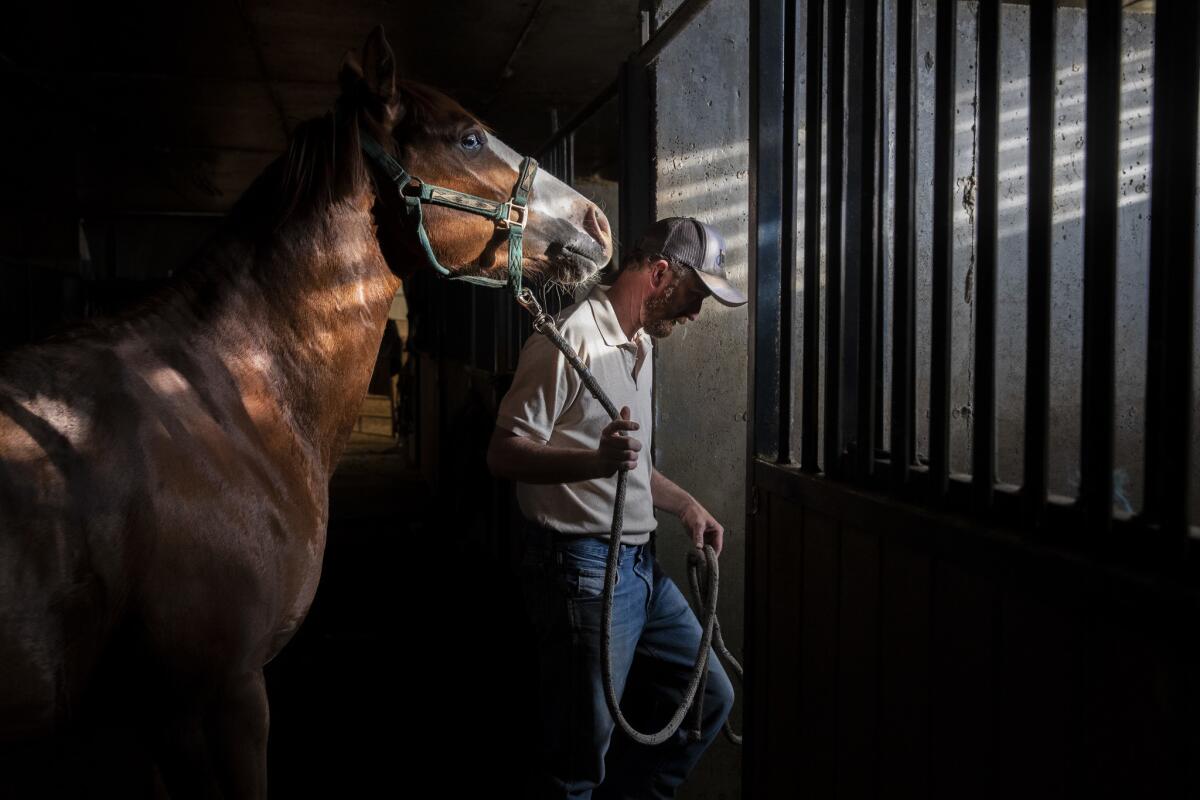
He got into his black pickup with the rifle his father gave him when he was a boy. He figured it would take him about a half-hour to get to the foothills.
Country music played on the radio, but Nathan Ivie barely heard it. He wore a light jacket. The weather had turned chilly that morning. Orange leaves on trees were beginning to make their last stand.
Ivie wanted it to look like a hunting accident.
When he got to the ridge, it was quiet. He took four rounds and loaded his rifle. He set up a paper target about 150 yards away. Ivie had killed deer in the past to help feed his family. Now he had convinced himself that his own death at age 22 would protect his relatives from a lifetime of shame.
He steadied the rifle, took aim and fired, purposely missing the bull’s-eye high and left. The second one, he drew down and fired again. The third round hit the same spot. The idea was to make it look like he was adjusting his gun scope for an upcoming hunt with his father in Utah.
Ivie paused. Took a breath. He then turned the .243 Winchester on himself and pulled the trigger.
Click.
The weapon had malfunctioned. Ivie dropped it and fell to the ground, sobbing. He curled up, his body shaking. Time was lost as he lay there on the fringe of the Colorado Rockies near Boulder. Nobody came. Finally — it could’ve been hours later — he stood up, packed up the rifle and drove back to the ranch where he worked in Longmont.
Thoughts about God raced through his head.
Why can’t he make me straight?
Why can he intervene so my gun doesn’t shoot me, but he can’t make me like girls?
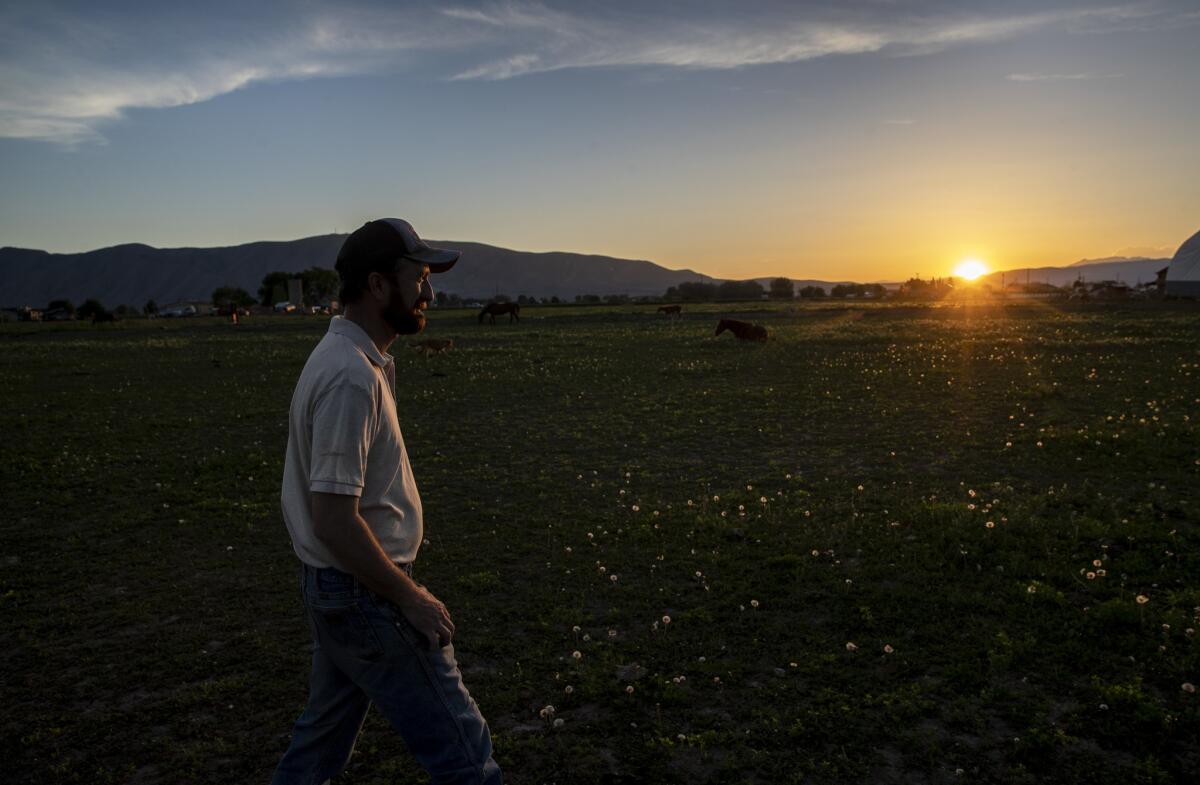
Over the next 18 years, Ivie found a wife, had two kids, showed champion horses and got into Republican politics by winning a seat on the Utah County Commission, all the while keeping that day to himself — buried deep beneath the pain.
Then, last year, he decided to come out to a close friend and tell him about his suicide attempt. In March, he told his wife and then his parents. Then late last month, at age 40, without going into the details he later provided the Times, he told the world.
“There’s no easy way to say this,” he said in a Facebook video. “I might as well jump up and say it: I’m gay. That’s my reality.”
Wearing his brown cowboy hat with the light strains of “Landslide” by Fleetwood Mac playing in the background, he told viewers about the suicide attempt. How he and his wife had separated, though maintained a good relationship: “She’s my best friend and supporter. And I’m hers,” he said.
With the post, Ivie became the first openly gay Republican to ever hold elected office in Utah.
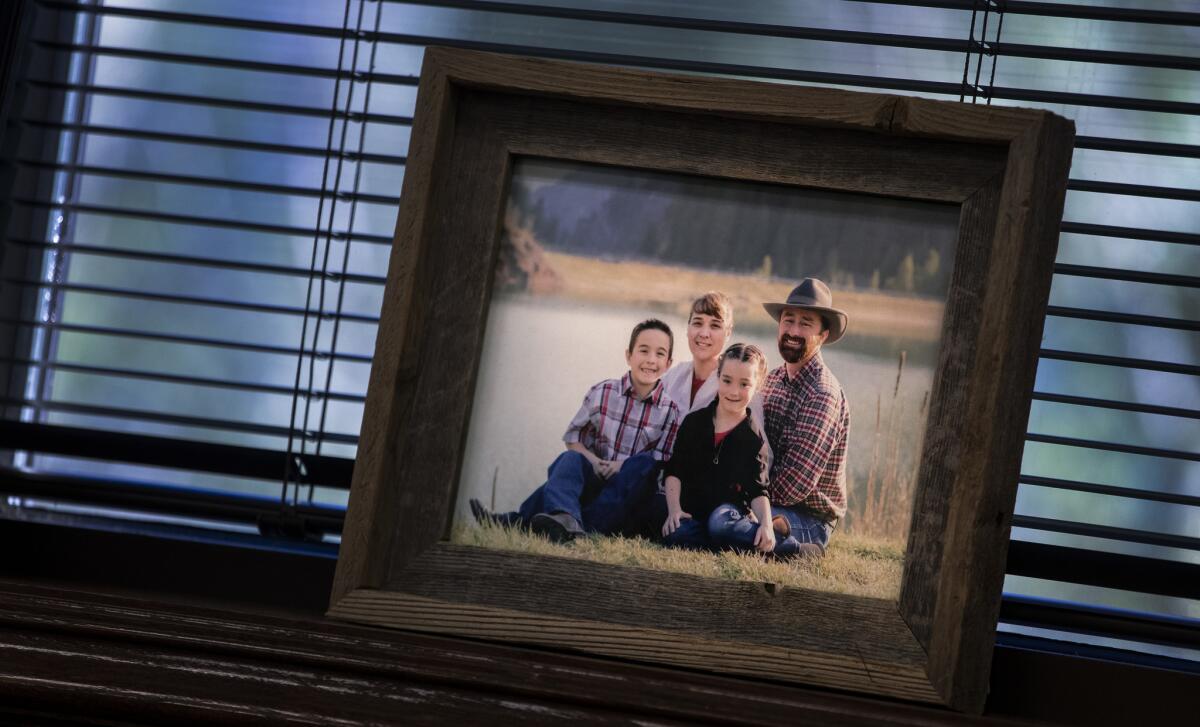
Utah County is one of the most conservative places in one of the most conservative states. There are 157,090 active registered Republicans — almost nine times the number of Democrats.
The county is also home to Brigham Young University, owned by the Church of Jesus Christ of Latter-day Saints — a faith that had long disapproved of homosexuality. Its current position is that being gay isn’t a sin, but engaging in homosexual acts is. Like the Utah County Republican Party, the church continues to oppose same-sex marriage.
Unsurprisingly, Ivie’s coming out has gotten some criticism, most prominently from the Utah Eagle Forum, a political interest group affiliated with the late Phyllis Schlafly, the conservative icon who led the fight against the Equal Rights Amendment in the 1970s.
“This isn’t how we do things in Utah,” said the group’s president, Gayle Ruzicka. “You don’t pat someone on the back and tell them how glad you are they left their wife. We wouldn’t be doing that if he announced he was leaving his wife for another woman.”
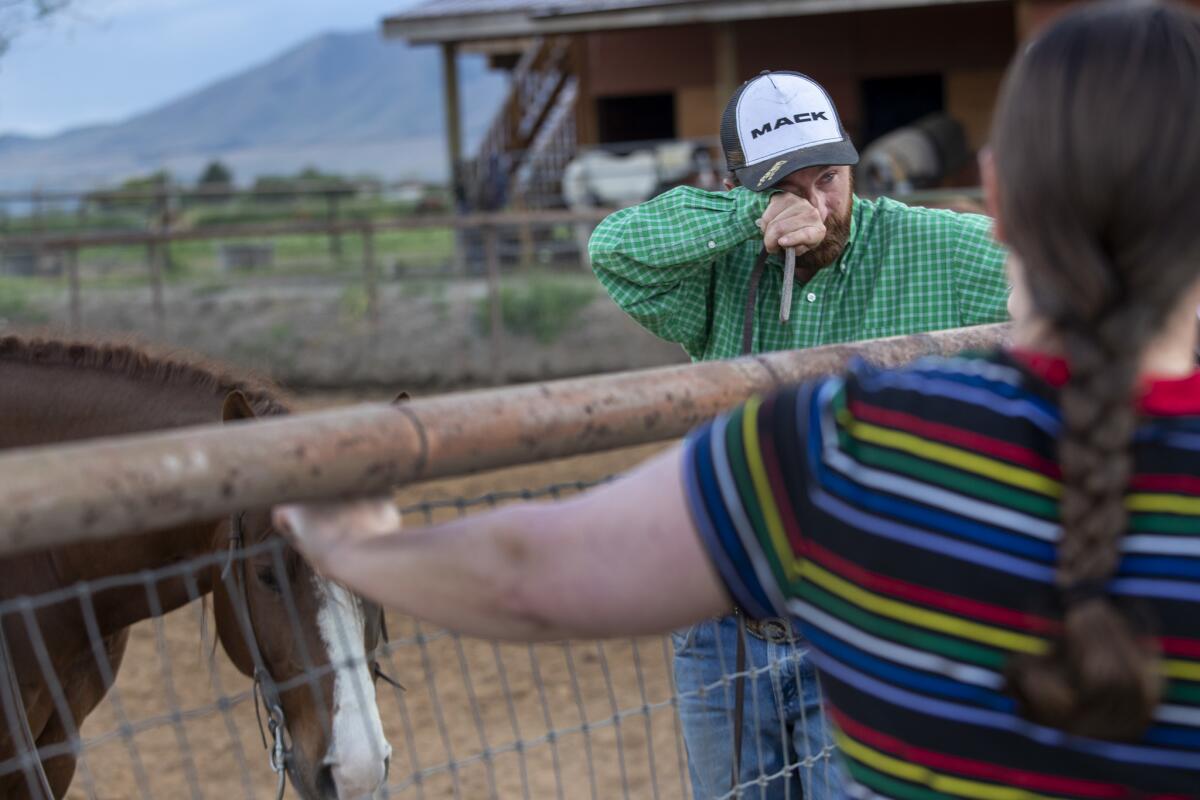
But Ivie has also received letters and emails from all over the state and the country lauding his courage.
Some have come from gay rights activists calling on him to leave the Republican Party, which he says he will continue to support because of its opposition to big government and taxes and its support for gun rights.
Tanner Ainge, one of the two other county commissioners, said he was proud of Ivie’s announcement.
“I hope this will give strength and hope to those in the LGBT community who have been feeling despair,” Ainge said. “I hope it also brings him peace.”
Ivie said reaching other people who are grappling with their sexuality and may be considering suicide is the main reason he spoke out.
“There is the 22-year-old version of me that is struggling, that is conflicted and battling over it, and they’re at a spot where death seems better than living,” he said. “I want my message to be: Keep going. We need you in our homes, in our community and in our nation. You have worth and value.”
Suicide is the top killer of teenagers and young adults in Utah, where 124 people ages 15 to 24 — or 25 out of every 100,000 — took their own lives in 2017, according to the most recent figures available from the U.S. Centers for Disease Control and Prevention. Only six states have higher suicide rates in that age group.
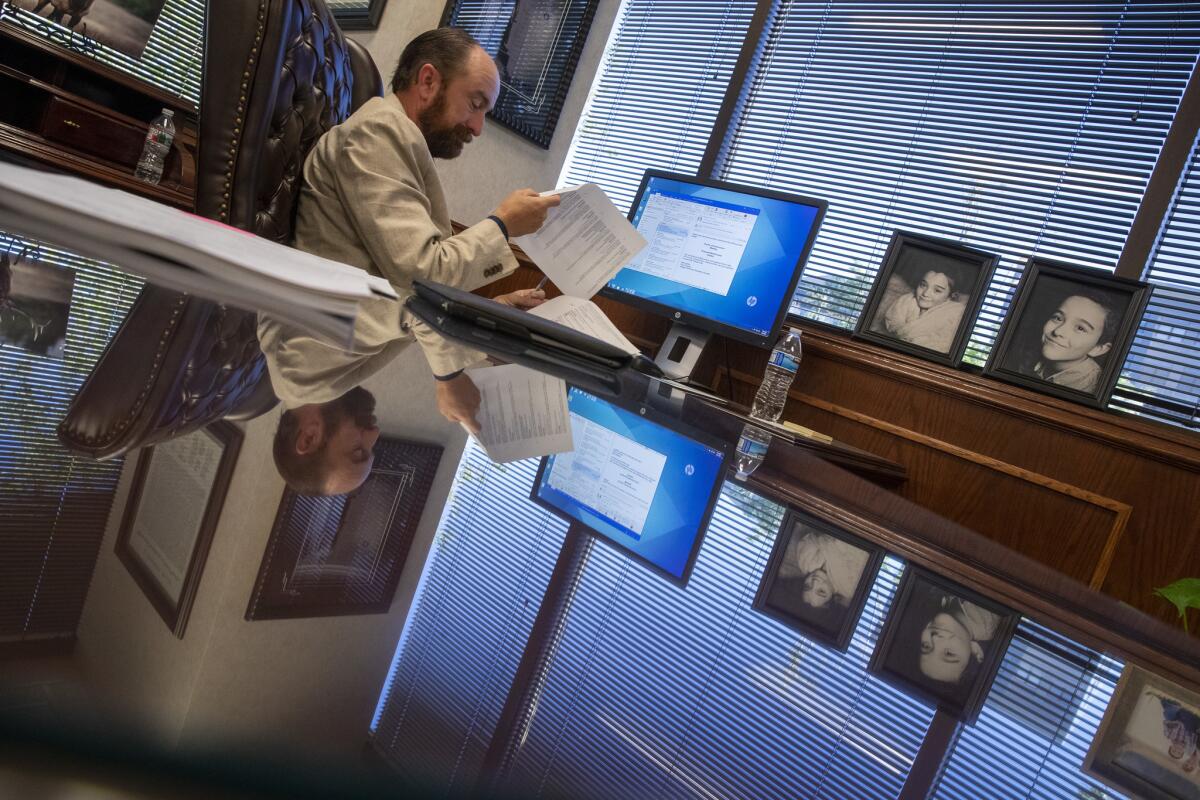
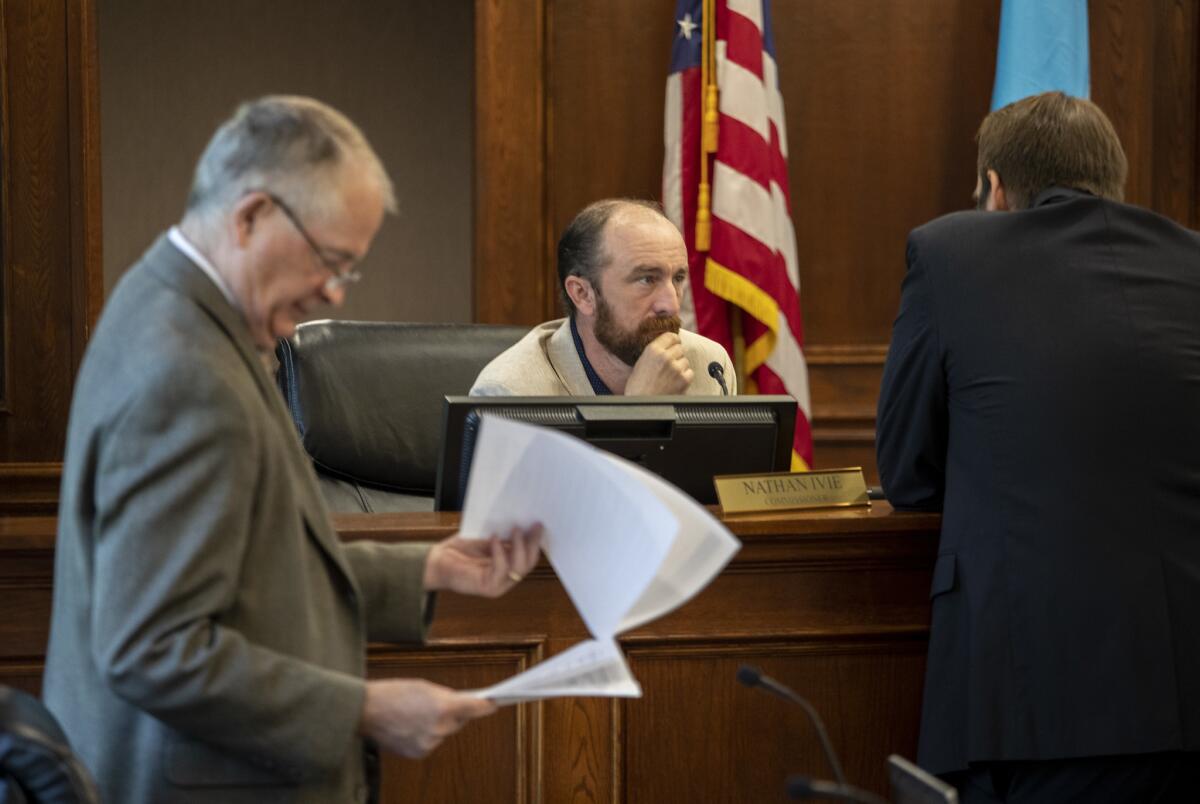
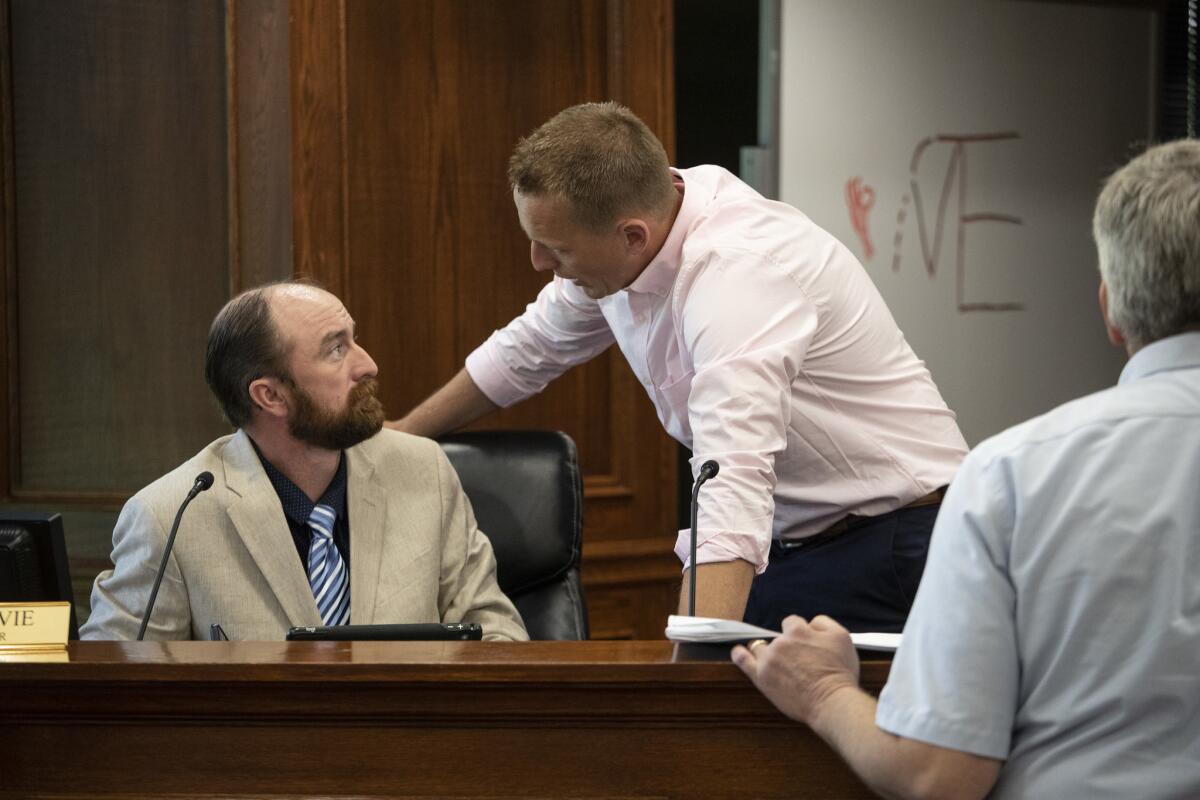
The strong grip of Mormonism on Utah — about two-thirds of state residents belong to the church — is thought to be an important factor.
“Family rejection is big in our state,” said Taryn Hiatt, who oversees Utah and Nevada for the American Foundation for Suicide Prevention. “Families often reject their children or family members because they’re ‘choosing’ to go against what God believes is right.”
Ivie knew the feeling.
He grew up Mormon in Salt Lake County on a ranch, where his father — a tough, quiet John Wayne type — taught him to break colts. At church and at school, he was being taught about puberty and hormones and how attraction to the opposite sex worked.
It wasn’t working for him. He’d kissed a boy at 9, but nothing from his family or his church suggested that was remotely OK. He felt broken. The barn became a refuge and a horse was the first living thing he came out to. “They don’t judge you,” he said.
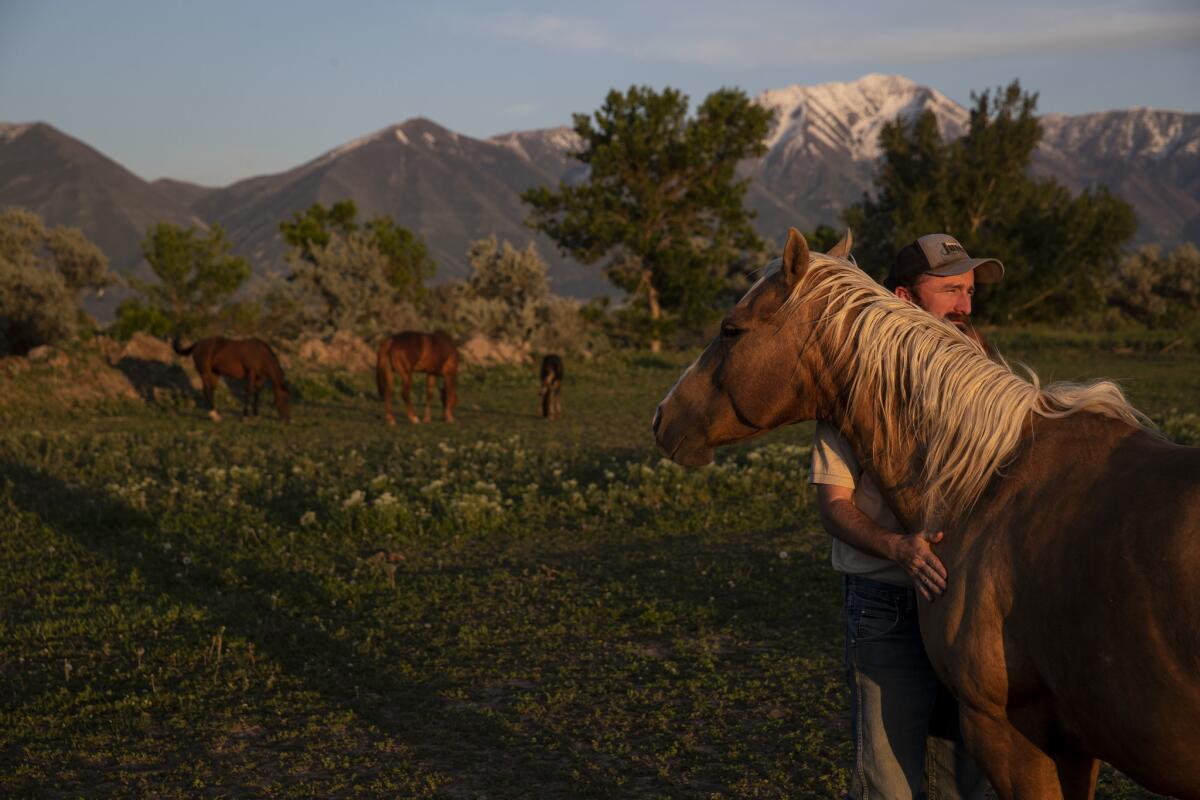
As he got older, he tried to move his gym classes to the end of the day to avoid taking showers with other middle school boys. When he graduated from high school and was confronted with the requirement to go on a Mormon mission, he was apprehensive.
Going to college didn’t help. He dropped out after a year at Utah State University and decided he wanted to pursue being a professional show horse trainer full time.
Ivie moved to Colorado in 1999 to work as an apprentice on the Longmont ranch. He spent some time working for George W. Bush’s presidential campaign in 2000 amid fears the state would turn blue.
The suicide attempt came on a Sunday morning that September — about two months before Bush would prevail over Al Gore in that close election decided by the U.S. Supreme Court.
When Ivie got back to the ranch, he told Jigger — a palomino horse — what had happened.
The next morning, he returned to the barn. Normally, country music would have been playing. This time, however, it was “Beautiful Day” by U2. He figured if he’d just follow what he thought God wanted, he’d be rid of the burden of having to hide this part of himself. So at 22 he went on his Mormon mission to San Bernardino.
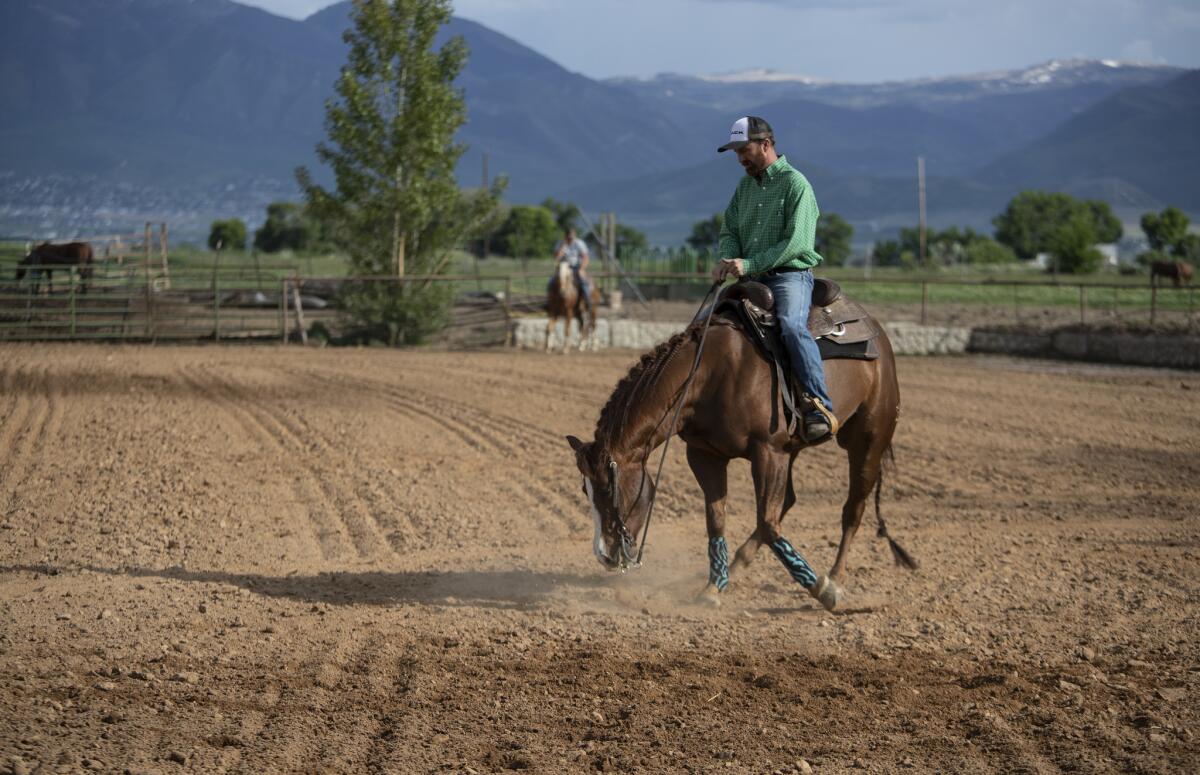
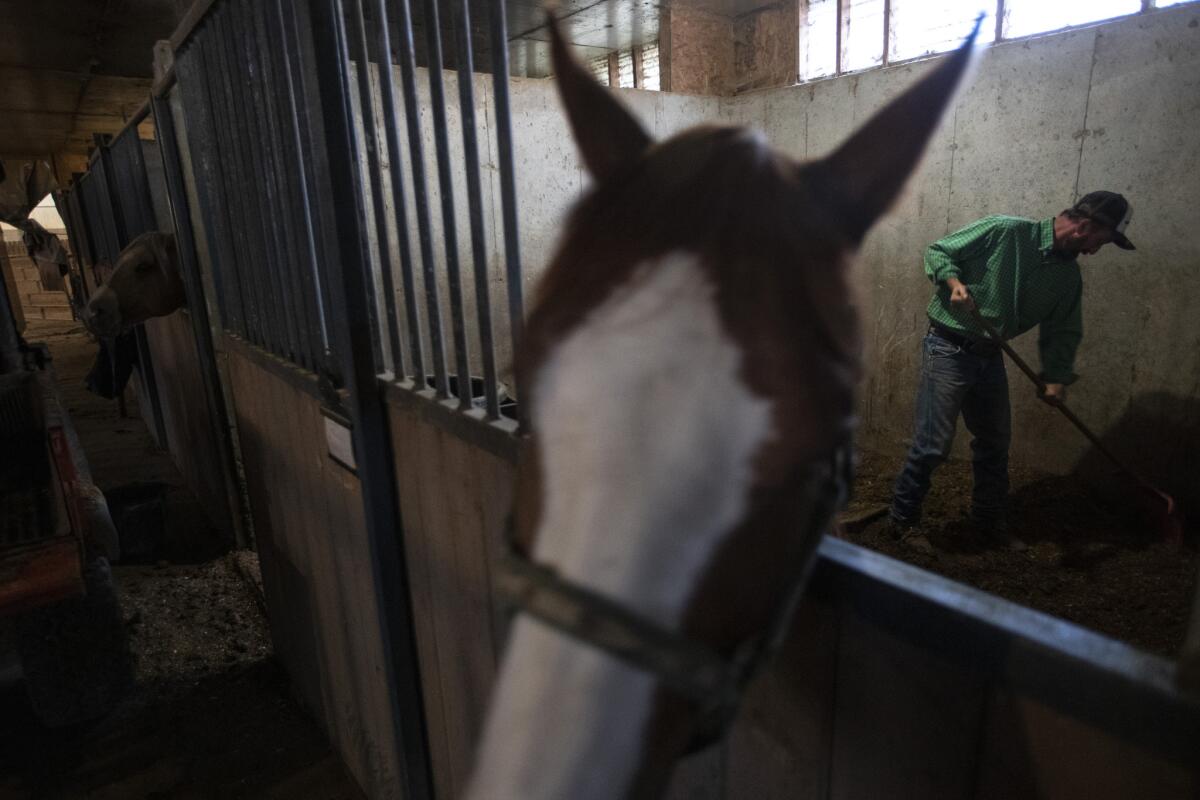
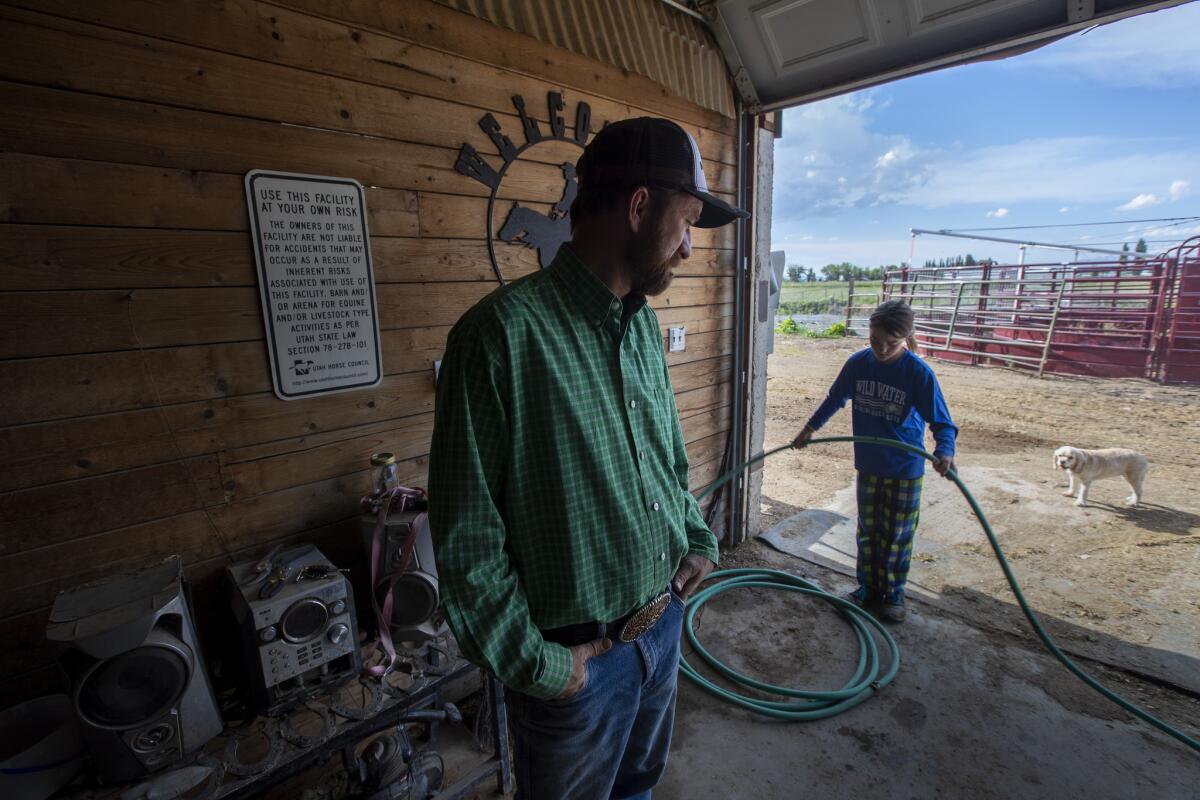
When he got back to Utah in 2003, he moved to a 30-acre ranch his family had recently purchased just south of Provo and began breeding and training show horses. Two years later, friends set him up on a blind date. Marriage and children soon followed.
“I thought God saved me and so if I went on this mission, the feelings would go away,” Ivie said. “Then I thought if I got married, the feelings would go away. And if I had kids, they would go away. Each step felt like it was supposed to be the step that got me over the hump. But they didn’t.”
Stephanie Ivie didn’t know any of this at first. She had liked him right away when they met. “I could tell he was a good guy,” she said. “He cares about people. He cares about animals. He cares about things. He treated me really well. You couldn’t ask for better.”
Life, from outward appearances, seemed to be on track.
He’d picked up world championships in American Quarter Horse Assn. and American Paint Horse Assn. competitions. He had a successful ranch and breeding operation. His daughter had taken to horses just like he did and he was proud watching her perform in her first riding show. He was training other riders, too. And in 2016 came his political victory.
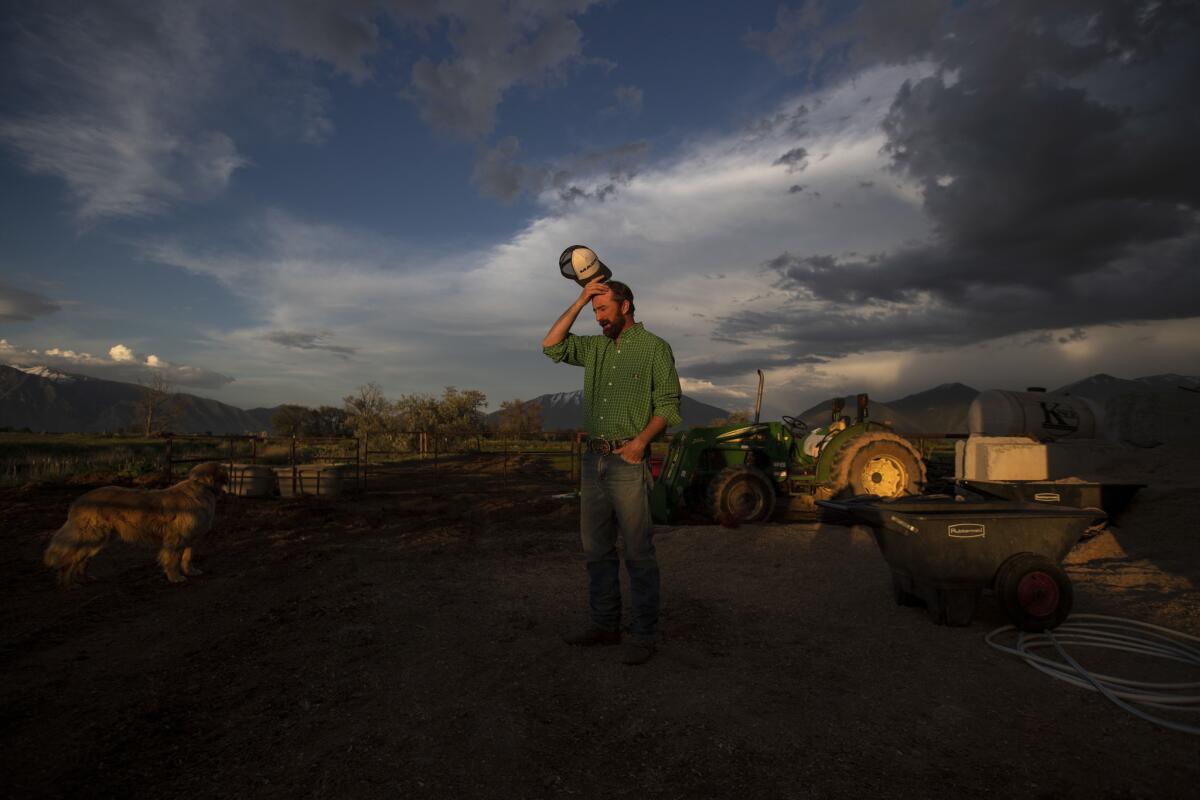
But inside, Ivie was still struggling. He felt like he was two people living one life — neither reconciled with the other.
Until now.
He said his family’s acceptance has been the most important thing. He said his dad told him he’d “kick my butt if I didn’t stay strong because what you’re doing is right.”
Sitting on his horse this month in the arena at his ranch, where he had just finished a training session with two riders, he said that process of reconciling his two selves is finally starting. Stephanie Ivie stood at the fence and listened. The kids were doing chores around the barn.
“When a horse is broken, I fix the horse,” Ivie said. “You train it, you work with it, and so I had this belief that if I worked hard enough at it, that I could change that — that I could fix that. The reality for me is there wasn’t anything to be fixed because that’s the way God made me.”
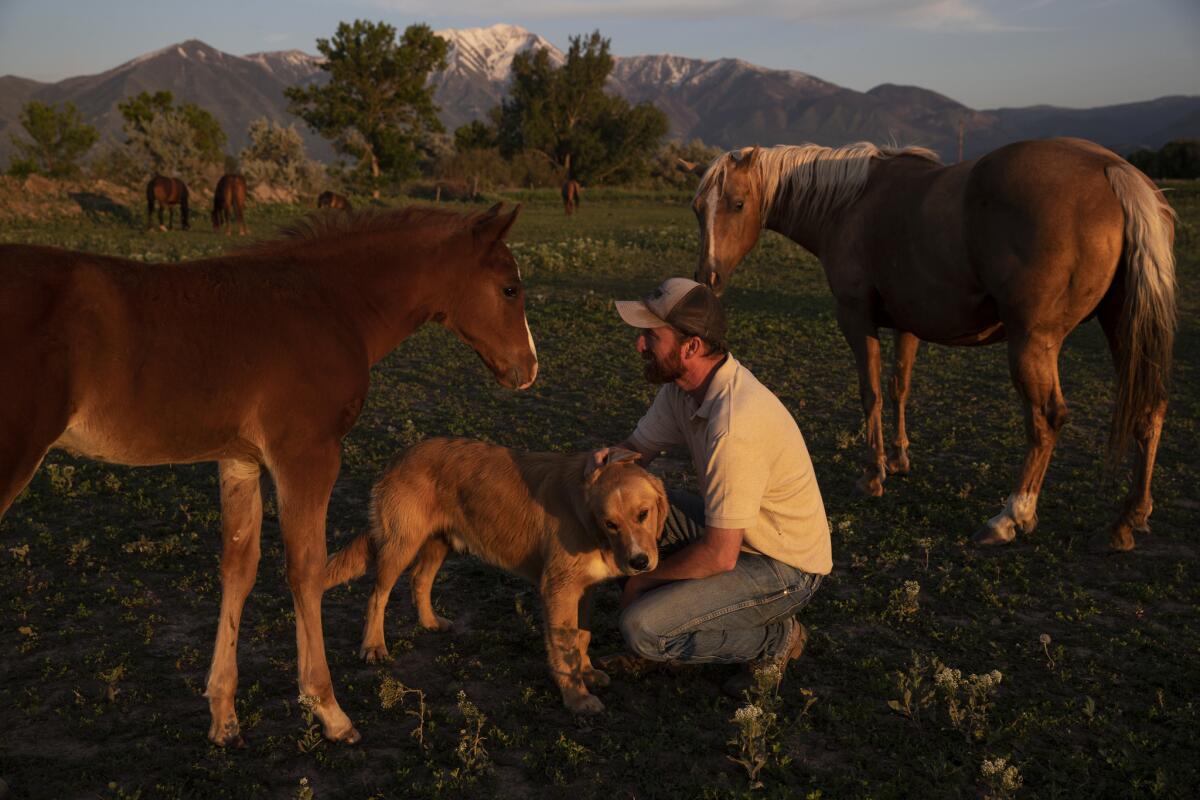
Start your day right
Sign up for Essential California for news, features and recommendations from the L.A. Times and beyond in your inbox six days a week.
You may occasionally receive promotional content from the Los Angeles Times.




